“Have you named it yet? I'd be honored if you'd name it Dave because I feel like I know it now, too.”
Dave Delisi—who at the time served as my dealer, green grocer, and candy man at Sweetgrass Rods—alluded to a brown trout whose allure had eroded my already meager capacity for self-control. What makes one fish stubbornly reject a fly another will eagerly take, I’d ask at 3 a.m., hoping ten more revolutions of the ceiling fan would release insomnia’s grip on my consciousness. This quest to answer a patently unanswerable question had transformed me—an otherwise capable man—into a neurotic ninny.
“I’m concerned the Siren song of Dave may be too much for me,'' I responded. “Tonight, I'm putting beeswax in my ears, tying myself to the deck, and forbidding my family from untying me no matter how loudly I might beg.'' My Siren was a brown trout I now called Dave, and my Tyrrhenian Sea was a remote river in the Ontonagon watershed.
The Ontonagon watershed spreads over thirteen hundred square miles in the Upper Peninsula of Michigan and Northern Wisconsin—a wilderness where whitetail deer outnumber people two-to-one. The Middle, South, East, West, and Cisco branches do most of the work, but scores of smaller creeks with names like Caddis, Cedar, Clay Bottom, Jug, Jumbo, and Whisky Hollow also carry water for the drainage. And, of course, there’s a Trout Brook and a Trout Creek. Many of these brooks, creeks, and rivers carve their tea-colored paths through the Ottawa National Forest, a place where most of the wild inhabitants die natural deaths without ever seeing, hearing, or smelling a human. It was there—in a spot where the slow-flowing water of an undisclosed branch gently messages its alder-lined bank—that a fish called Dave patiently lingered, waiting to ambush the next helpless bug perpetrating an ill-fated float through his dining zone.
It was early June in 2012, about a month before the world went Gangnam Style, and I was breaking camp to head home after a week on the Escanaba River. I was well-worn and ragged, but still somehow restless and hesitant to let go. The direct route home—through Rock, McFarland, Gwinn, Ishpeming, Nestoria, and L'Anse—weaved its way through and around much of the Escanaba watershed and along many of the rivers I'd fished for the past week. The long route home—through Felch, Crystal Falls, Iron River, Bruce Crossing, and Twin Lakes—would add fifty miles to my journey but, more importantly, wind its way through the heart of the Ontonagon drainage. My new bamboo rod—“Voelker's Nijinsky”’— had excelled on the Esky. I now wanted to test its mettle on the Upper Peninsula's other big river.
More Like This
Though much of the Ontonagon system flows through public land, access to the best locations is difficult. If you’re ambitious and brave, you can park close to the river, but when a seemingly small puddle becomes a bottomless pit of tire-grabbing goo, a five-mile walk for help will erode your ambition and blunt your bravery. Like lipping a pike, lessons like this need only be learned once, so I parked on high, safe ground and took a short but spirited hike to the water. I assembled the rod, attached the reel, strung the line, sat on a log, and waited for a fish to announce its location.
The first rise spread from under a weathered sweeper whose white branches and bark stood in remarkable contrast to the immature maples and thimbleberry plants. I attached a Roberts Drake to my leader—the fly I'd come to believe should be standard issue in all backwoods emergency survival kits—waded into the water and cast. Irksome current seams and eddies dragged and jerked my fly on every drift, and on my one nearly drag-free cast, the trout rose just when the fly dragged. The surface erupted as the fish recognized my hoax and bolted for the bottom. I repeated this unproductive maneuver with two other fish, then returned to the log to mope and pout.
Another fish rose farther downstream. The rise was soft and subtle, so I re- moved the Roberts Drake, downsized the tippet, and attached a size 20 Griffith's Gnat. Two casts later, I was on. Though I had missed the larger fish, the summer had just started, and if gas stayed below five dollars a gallon, I could afford to return a few more times.
During the drive home, my mind replayed the failed encounters with the bigger fish. I had caught a good fish—a very good fish—but the ones I missed—the ones that recognized my offering as a sham—were great fish.
“Don't you think you obsess too much about trout fishing?'' Roxanne asked the following day while I paced the house like a caged tiger.
“Not at all. I only obsess about it when I'm not fishing.”
Coincident with my snark, the early summer humidity caused her hand to lose its grip on a skillet, which, in turn, caused the skillet to take flight and narrowly miss my head. We agreed it would be best if I left the house until the humidity dropped to a safer level, so I retreated to the Great White Whale—an eighteen-and-a-half-foot Ford Expedition stocked with fishing equipment and enough food and drink to feed and hydrate a family of bears for a week.
Nearly two hours later, I was sitting on my log and staring at the sweeper when the large fish rose. Voelker's Nijinsky was a healthy scratch. In its place was my first bamboo rod, a seven-foot, nine-inch Sweetgrass Mantra I’d bought from my dealer, Dave. I attached a three-foot tippet to compensate for the seams and eddies, tied on a Griffith's Gnat, and put a well-timed cast directly over the fish.
The tiny fly didn't drag, and the trout ate. The fish bolted for the opposite bank, then turned left and drove into the current. The bulk of my line was still extending toward the opposite bank when the trout jumped for its life twenty feet upstream. With so much line in the water, I didn’t stand a chance. Ping. My fly-less line had six inches of tippet attached to the leader. At least it wasn't my knot.
I'd driven a long way for a shot at that fish, but now it was over. I sat on my log, tied on a new tippet, and resolved to wait another half hour. Ten minutes later, a fish rose just below the sweeper. I attached a Gnat, waded into position, and caught the fish in a manner that might have caused an unknowing observer to believe I knew what I was doing. Another good fish, but not the great fish I was after.
I feigned sanity and stayed away from the river for four days, but the pangs of obsession finally loosened my grasp on normalcy. That, and Roxanne's sympathetic encouragement: “For the sake of all that is precious in our family, you should go back to the river and try to catch that fish.'' Or something like that.
My third trip to the river was much like the first. I hooked and landed one good fish, but the largest refused my offerings. Three trips to the river, and all I could claim were three unremarkable fish. Three good fish, to be sure, but the biggest fish—the one I spent over $40 on fuel for each round trip—had eluded me. I enjoyed sending Dave photographs of fish I caught on the Sweetgrass rod, and Dave seemed to enjoy seeing them. I had already sent a snapshot from four nights earlier, and in the process of cleaning up the most recent photo, it hit me like an open cabinet door. The freckle patterns on the two fish were identical.
Got out again last night. I'm sure none of the Booboys (and girls) will be surprised by this, but catch, release, and catch again works. Here’s the star of my previous photo, as he looks four nights after the first photo shoot. I've done this a few times before, and each time I pledge to not catch the fish again. You kinda get to know 'em, and it breaks my heart to think of anything happening to a fish I've caught once or twice. I'm sentimental that way.
“Wow . . . you must have been using the same fly?” Dave responded.
The same pattern, but a different fly. Those size 20 Griffith's Gnats don't stand up to many fish. But, I have a confession to make about this fish in particular and my bamboo fly rods in general.
I’ve been searching for the right way to tell you this, and I suppose the best way is to just say it: I bought another bamboo rod this year, and it’s not a Sweetgrass Rod. I hope you can forgive me. I was seduced.
And, beyond that serious indiscretion, I unintentionally violated my catch twice rule with this fish. Last Friday, I caught the fish with Voelker's Nijinsky. The fish I caught on Saturday with the Mantra was the same. A few other nice fish had been rising, so I returned last night. I caught the fish again in a slightly different part of the run, thinking it was one of the other fish. Several other fish feed in this run, so I've been returning hoping to find one of them rising in a steady—and catchable—pattern.
So here are my confessions: first, I violated my rule and caught this fish three times; and second, I cheated on you with another rod. I hope you can forgive me.
“Not much time to respond,” Dave wrote, “but first, know that I forgive your cheating on me with another rod . . . I would consider ours an open marriage, Newt-Gingrich-style.
“Regarding catching the same fish three times, I think it is amazing and also a testimony to your gentle handling of the fish.''
Still obsessed with catching the great fish under the old white sweeper, I re- turned to the river two weeks later. My note to Dave told the story:
I went out tonight with the 4/5 Mantra. Caught a nice brown early in the evening, then went to a familiar section. Four good fish were rising, and I targeted the one I thought was least likely to be the one I’d caught three times this year. Well, this is getting out of control. As you can see, I caught the fish on a different fly (the most excellent Roberts Drake), but this is getting crazy. Some very nice fish live in this section, but I'll be darned if I don't keep catching the same one. A fish rose in the spot where I'd caught this one before, and this fish was feeding twenty feet upstream, so I really believed I was onto a different fish this time. The trout swam away with gusto, though, so I guess I'm not hurting it too much. I honestly don't want to catch this fish anymore, so I may have to stop fishing that section of the river.
“You crack me up,” Dave replied. “I can just imagine your surprise each time you land the same freakin' fish. Have you named it yet? I'd be honored if you'd name it Dave because I feel like I know it now, too.”
Things are not always what they seem;
The first appearance deceives many.
Phaedrus
Book IV, Fable II

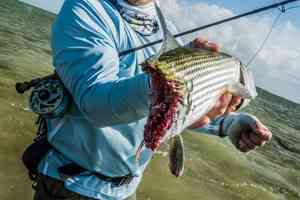
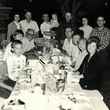


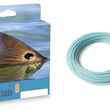
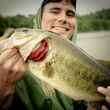



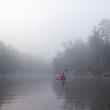
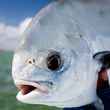
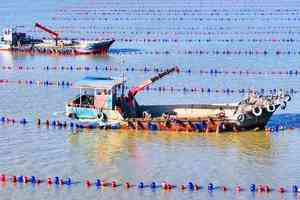
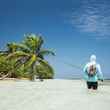

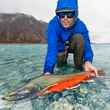
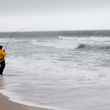



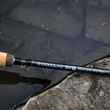
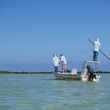



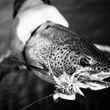
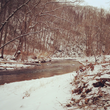
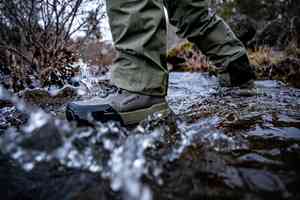
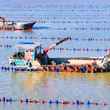

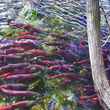
Comments